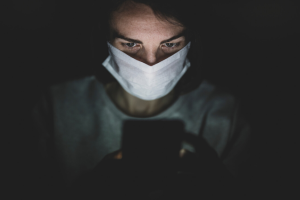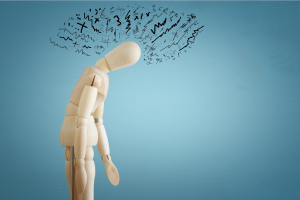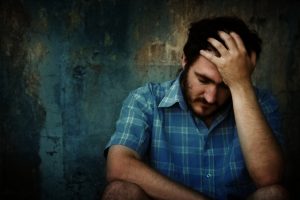Death Anxiety and the Coronavirus
 The ultimate tragedy of the human condition is our awareness of our inevitable mortality. Each person is born with a death sentence. The developing child initially discovers the traumatic reality that their parents will die and later that they themselves will eventually die. This reality is too terrifying to tolerate, so the child must resort to psychological defenses. However, defensive solutions such as denial and religious beliefs that offer respite from death attempt to block out the pain, but never fully eliminate death anxiety. Death awareness has a powerful effect on every aspect of human life.
The ultimate tragedy of the human condition is our awareness of our inevitable mortality. Each person is born with a death sentence. The developing child initially discovers the traumatic reality that their parents will die and later that they themselves will eventually die. This reality is too terrifying to tolerate, so the child must resort to psychological defenses. However, defensive solutions such as denial and religious beliefs that offer respite from death attempt to block out the pain, but never fully eliminate death anxiety. Death awareness has a powerful effect on every aspect of human life.
The degree of death anxiety varies among individuals, and real events in life tend to either elevate it or calm it. Negative events such as financial failure, rejection, accidents, signs of aging and ill health, and the loss of loved ones, are reminders of death that reawaken the unconscious feelings of terror that were repressed when we originally learned about death. Manmade and natural catastrophes such as the coronavirus especially contribute to an elevation of death anxiety.
In Beyond Death Anxiety, (2009), I describe how the fear of death predisposes a core paranoia in that all people are faced with destructive forces beyond their control that will eventually destroy them. When children first become aware of their personal death, this knowledge contributes to a basic distrust or paranoia that can later be projected onto real-life situations that may or may not have anything to do with the original issue. The process of displacing one’s paranoid thinking and distrust onto other aspects of life leads to varying degrees of maladaptation. People who defend themselves in a fearful style against a perceived harsh or dangerous world tend to use obsessional thinking to restrict their actions. They imagine they can control death by guarding and protecting themselves and anticipating all contingencies.
The current pandemic is the “perfect storm” on which to focus our anxiety, paranoia and obsessive thinking. In actuality, the coronavirus is a direct death threat, but as noted, it is also intensified by death fears that have been successfully defended against prior to this time. The current rise in death anxiety has lead to an increase in a variety of psychological symptoms. As an example, CNN recently reported that two-thirds of the people interviewed in a survey said they experienced “more depression, more anxiety, more stress and had more trouble sleeping than before the pandemic.”
Besides the virus itself, self-isolation is a potential threat to mental health, giving rise to a variety of psychological complaints such as depression, paranoid ideology, an increase in domestic violence, suicide, and alcohol and drug abuse. Of great concern is a recent study showing that “In March, more than 2.5 million firearms were sold, including 1.5 million handguns…In the best of times, increased gun ownership is associated with a heightened risk for firearm-related suicide…and this is not the best of times…The physical distancing necessary to curb transmission of coronavirus has disrupted social networks. Combined, these forces create a climate with the potential to increase firearm-related violence and suicide.”
For example, Janet, a fifty-year-old woman and former client, self-imposed a rigid form of isolation and became extremely hypochondriacal. She was absolutely terrified of catching the virus and barely even peeked outside her window for weeks. The time alone increased her fear and eventually gave way to a paranoid orientation. She even imagined that her friends were betraying her and that she could no longer trust them. Fortunately, she had the wisdom to contact me and I was able to help her calm down and rationally evaluate her present circumstances. Later, she realized that much of her alarm, although precipitated by the threat of the coronavirus, was also a reaction to her original death fears. Most importantly, this insight offered her significant relief from her anxiety symptoms and paranoid thinking.
Conclusion
Reminders of illness and death tend to arouse unconscious feelings of primitive dread from the past. To varying degrees, most people rely on defense mechanisms in an attempt to avoid reawakening the suppressed feelings of anxiety and terror they experienced as children, when they first learned about death. The coronavirus has increased everyone’s death fears, but peoples’ individual reactions are compounded by their original death anxiety. The pandemic has led to an increase in a variety of psychiatric syndromes, particularly anxiety and panic attacks, OCD symptoms, addictions, and paranoid thinking.
Yet even when confronting the painful existential issues triggered by the coronavirus, we could choose to embrace life and live with the increased awareness of death rather than overreacting, defending ourselves, and putting ourselves at risk of developing symptoms of pathology. We could use the same set of circumstances to give greater value to our lives. As Ernest Becker (1973/1997) noted, “As long as man is an ambiguous creature, he can never banish anxiety; what he can do instead is to use anxiety as an eternal spring for growth into new dimensions of thought and trust”. (p. 92).
References
Ariana Huffington (May 8, 2020) interview by Fareed Zacharia, GPS: Global Public Square CNN.
Firestone, R.W. & Catlett, J. (2009) Beyond Death Anxiety: Achieving Life-affirming Death Awareness. Springer
Mannix, Lee, & Fleegler (April 29, 2020) Coronavirus Disease 2019 (COVID-19) and Firearms in the United States: Will an Epidemic of Suicide Follow?
Tags: anxiety, death, death anxiety, death awareness, existential, self-awareness
2 Comments
Comments are closed.










Once you consider and realize that we are here for a reason, death becomes less scary.
We are souls. Bodily death is not then end.
Hi there,
Would Dr Firestone be able to say which source the Ernest Becker quote comes from?
Thanks